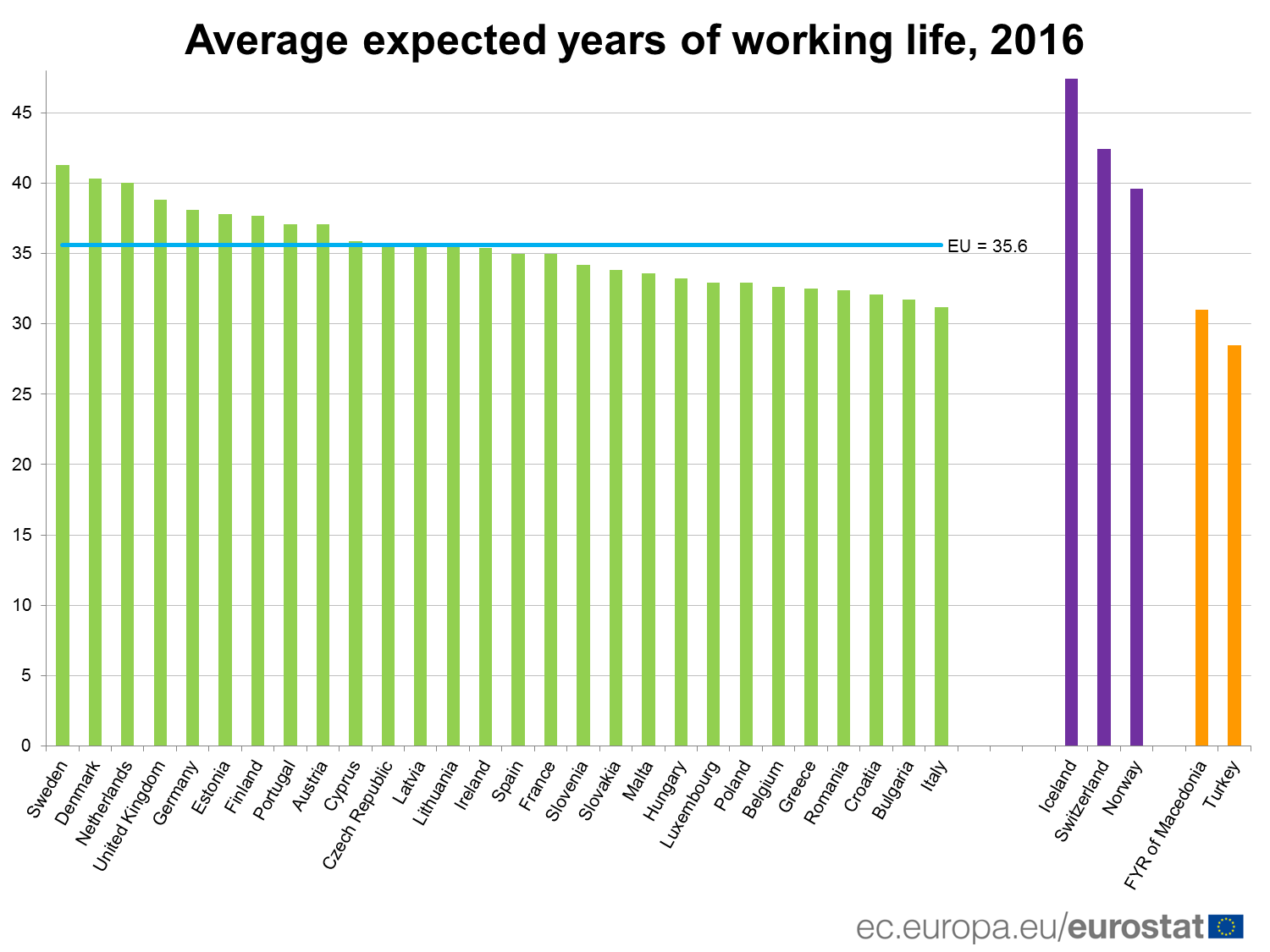In 2016, people in European Union (EU) could be expected to work for an average of 35.6 years, up by 1.8 years compared with 2006. Over this 10-year period, the 'duration of working life' increased more rapidly for women (33.1 years in 2016 compared with 30.6 years in 2006, or +2.5 years) than for men (38.0 years in 2016 contrasting with 36.9 years in 2006, or +1.1 year).
The 'duration of working life' indicator measures the number of years a person, aged 15, can expect to be active in the labour market, either employed or unemployed, throughout his/her life.
Working life ten years longer in Sweden than in Italy
Across the EU Member States, in 2016 Sweden had the longest expected average working life (41.3 years). Denmark and the Netherlands followed with 40.3 years and 40.0 years respectively, ahead of the United Kingdom (38.8 years), Germany (38.1 years), Estonia (37.8 years) and Finland (37.7 years). At the opposite end of the scale, working life was expected to last less than 33 years in Italy (31.2 years), Bulgaria (31.7 years), Croatia (32.1 years), Romania (32.4 years), Greece (32.5 years), Belgium (32.6 years) as well as in Luxembourg and Poland (both 32.9 years).
In all Member States except in Latvia and Lithuania, the 'duration of working life' was expected to be longer for men than for women in 2016.
The source dataset can be found here.
Largest increase in the duration of working life in Malta, Hungary and Lithuania
Between 2006 and 2016, the expected length of working life increased in nearly all EU Member States, albeit to different extents. Malta saw the highest increase (+5.1 years), followed by Hungary (+4.5 years) and Lithuania (+4.2 years), Poland (+2.7 years), Estonia (+2.6 years) and Austria (+2.4 years). In Cyprus (-0.1 year), Ireland and Portugal (both +0.3 year), it remained nearly the same.
Increase mainly driven by women expected to work longer
The overall increase in the 'duration of working life' across Member States has generally been driven by the change in the duration of a woman's working life. The length of time a woman could be expected to work rose between 2006 and 2016 in all EU Member States (except in Romania), notably in Malta (+9.0 years), Lithuania (+4.6 years), Spain (+4.4 years), Hungary (+4.2 years), Luxembourg (+3.6 years) and Austria (+3.2 years).
In contrast, the 'duration of working life' for men dropped in five Member States: Cyprus (-2.4 years), Greece (-1.4 years), Ireland (-1.1 year), Spain (-0.8 year), and Portugal (-0.5 year).
You can read more about our statistics on duration of working life in our dedicated online article.


